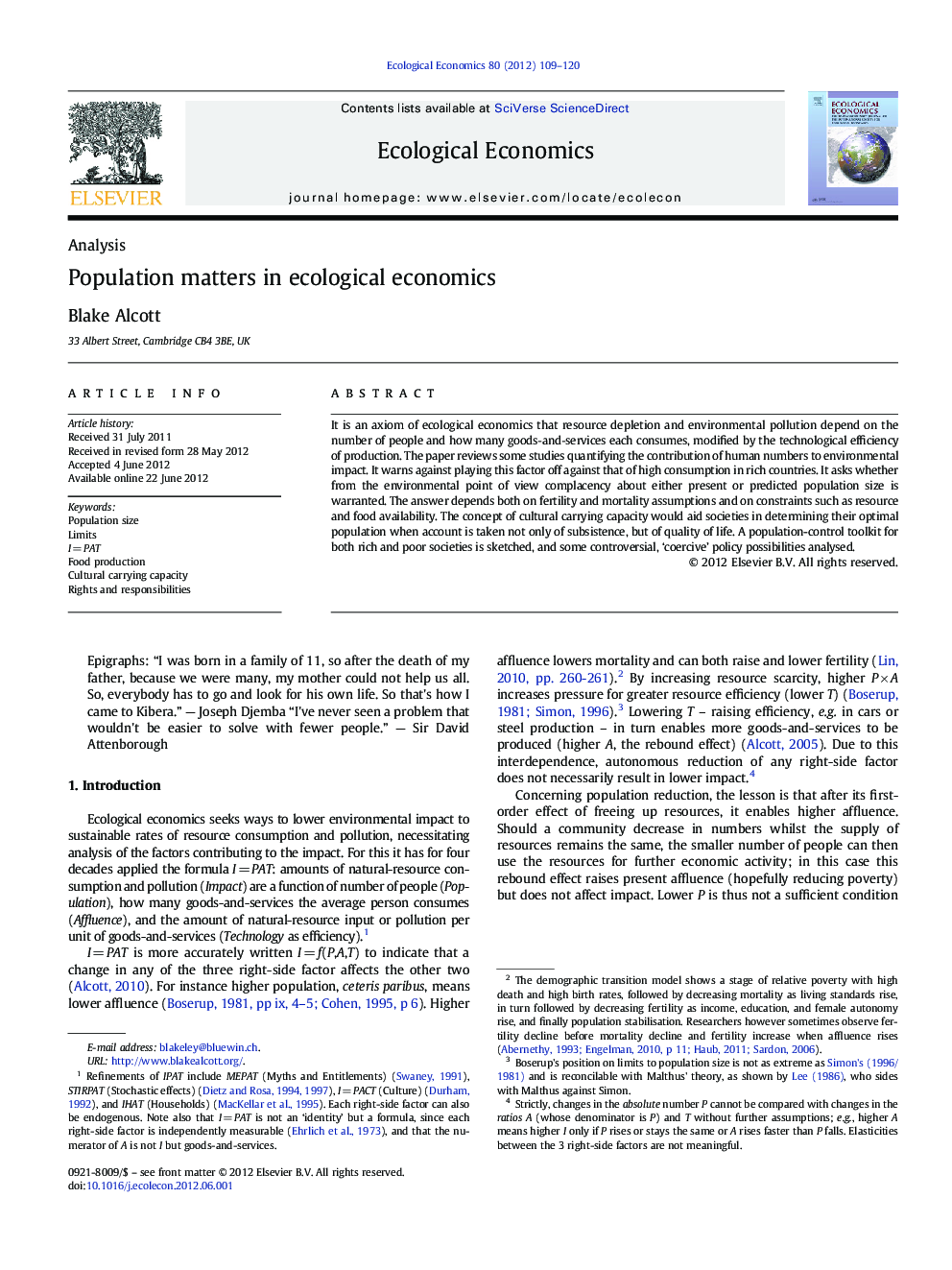| کد مقاله | کد نشریه | سال انتشار | مقاله انگلیسی | نسخه تمام متن |
|---|---|---|---|---|
| 5050240 | 1476399 | 2012 | 12 صفحه PDF | دانلود رایگان |

It is an axiom of ecological economics that resource depletion and environmental pollution depend on the number of people and how many goodsâandâservices each consumes, modified by the technological efficiency of production. The paper reviews some studies quantifying the contribution of human numbers to environmental impact. It warns against playing this factor off against that of high consumption in rich countries. It asks whether from the environmental point of view complacency about either present or predicted population size is warranted. The answer depends both on fertility and mortality assumptions and on constraints such as resource and food availability. The concept of cultural carrying capacity would aid societies in determining their optimal population when account is taken not only of subsistence, but of quality of life. A population-control toolkit for both rich and poor societies is sketched, and some controversial, 'coercive' policy possibilities analysed.
⺠Although the population factor in I = PAT is significant, it receives too little attention. ⺠Complacency about population, from both environmental and welfare standpoints, is not warranted. ⺠Desired population size - cultural carrying capacity - can be determined using I = PAT. ⺠Developing countries prioritise population policies. ⺠Policies for rich countries, and some called 'coercive', are analysed.
Journal: Ecological Economics - Volume 80, August 2012, Pages 109-120